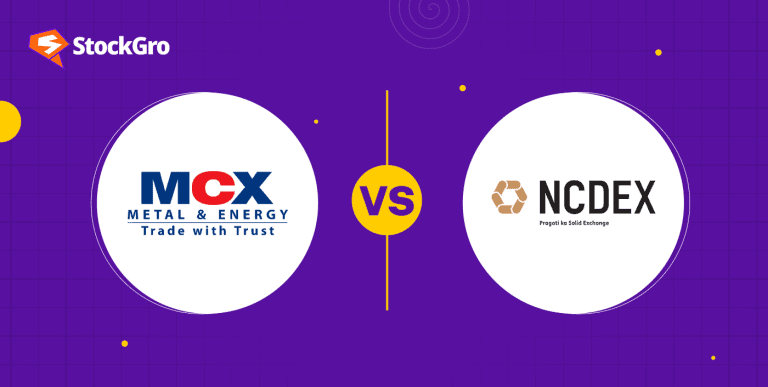
In the ever-evolving world of finance and stock markets, it becomes very difficult for people to keep track of the latest developments and opportunities. To solve this problem, you can hire an equity advisor.
In this article, we will look at who is a financial advisor and how they can help you create the best investment portfolios.
Who is an equity advisor?
An equity advisor is a professional who gives financial advice related to equity markets and helps their clients make equity investments as per their risk-taking capacity, time horizon for investment, and investment objectives. These advisors have knowledge about stocks, sectors, the latest developments, and portfolio management in general.
In India, certification provided by the National Institute of Securities Markets (NISM) is necessary for becoming a registered equity advisor. This shows the advisors have complete knowledge of their field.
You can avail the services of either a financial advisory company or an independent investment advisor.
Functions of an equity advisor
A professional financial advisor can help you in the following ways:
- Research and analysis: People who are engaged in other professions than finance do not get the time to stay up to date with the latest financial news, but they understand the benefits of investing. Such people can take the services of a professional advisor who can help them build investment portfolios on the basis of their investment horizon, risk-taking capabilities, and goals.
- Diversification: People sometimes put all their money in stock after taking advice from their friends and relatives or by reading the news without further investigation or research. This can be very risky and bears the potential to ruin the entire savings of a person. Equity advisors make sure that their clients have diversified investments.
- Risk management: Professional equity advisors are experts at building investment strategies that are aimed at minimising risk and maximising returns. People sometimes underestimate various types of risks and ignore them, whereas professionals understand these hidden risks and can build strategies to minimise them.
- Monitoring and adjustment: Investing in equity markets requires constant monitoring of the portfolio. Equity advisors monitor the portfolios of their clients periodically and make necessary changes. This is done to ensure that the portfolio is optimised both according to the latest changes in the markets and the client preferences.
- Legal and Regulatory compliance: Equity advisors clearly understand all the rules and laws related to the field and can help their clients by properly advising them on the same. These compliances are complex and can be very complex tasks to understand.
Also read: Diversification: Why it is important for your portfolio
Role of equity advisors for various investor profiles
An equity advisor can help investors of every profile, whether they are beginners or are already invested in the markets. A beginner can benefit from the experience and sound financial advice from an equity advisor at the start of their investment journey and can clearly know what to expect from the market.
An investor who is already invested can also seek financial advice regarding rebalancing and adjustment of their portfolios and try to lower the risks that their portfolio might currently be exposed to.
How to choose the right equity advisor?
When looking for the right equity advisor, focus on aspects like qualification and certification. A good equity advisor must have the required certifications like a NISM certificate and also a professional degree like an MBA in finance, Charted Financial Analyst (CFA), etc. The designation shows that the advisor has a complete knowledge of this field.
Try to look for an experienced advisor with a proven track record. The more experience someone has the better it is since they would have experienced various market cycles, periods of high and low volatility, etc. This will be visible in their track records and returns of their investments.
Before choosing any advisor, properly understand their fee structure. Professionals with a good track record might charge higher fees but a higher fee can lower your returns so try to find a perfect balance.
Before choosing an advisor it is important to compare a few advisors and clearly understand the risks involved in their investment style. Make sure your advisor clearly understands the laws and regulations.
Also read: Beyond the safety net: Understanding the risks of fixed deposits
Key considerations before choosing an equity advisor
Hiring an equity advisor does not mean that you can achieve unrealistic returns or that the risk is eliminated. Understand that risk will always prevail. A portfolio crafted by a professional advisor will face unprecedented risks like interest rate fluctuations, changes in fiscal policies, geopolitical risks, etc.
However, a good financial advisor can help minimize these risks by employing strategies like hedging, diversifying, portfolio rebalancing, etc. The goal should be to return maximization with risk minimization.
Also read: Risk tolerance and investment strategy
Conclusion
Taking professional services from an investment advisor can help you achieve your financial goals and keep realistic expectations. Whether you are a beginner or someone who already is involved with the investment world can benefit from sound financial advice. Look for professional advisors with good knowledge and experience.
Always understand that hiring a professional does not mean you will become rich overnight or eliminate risk. All you would be doing is lowering your risk for maximum possible returns. Pick your investments and investment advisor wisely.
FAQs
An equity advisor is a professional who helps their clients in building their investment portfolios. Equity advisors have complete knowledge about the workings of the stock markets and they also track the latest developments in the field of finance. They are up to date with the latest technologies and strategies.
Yes, seeking financial advice does not mean your portfolio is free from risks. Risk has an all-pervasive nature in the financial markets. However, equity advisors have a good understanding of risks and they can craft strategies to minimize them. But risk always exists in various forms.
While choosing the right investment advisor, always look for a professional who has proper certification and experience. Try to understand their investment philosophy and also compare the fee structure of various advisors. Look at their historic track record and how they fared out in various periods of volatility.
It is not necessary to take the services of a financial advisor. But if someone has the resources and can manage to pay their fees and charges they can think about availing professional advice. Since these advisors have knowledge about markets and risk. They also help set realistic expectations for beginners.
In India, the National Institute of Securities Markets certification is necessary to obtain an equity advisor license. Additionally, courses like Chartered Accountant (CA), Chartered Financial Analyst (CFA), and MBA in finance are always an added advantage. Always avail advice from a SEBI registered analyst only.

